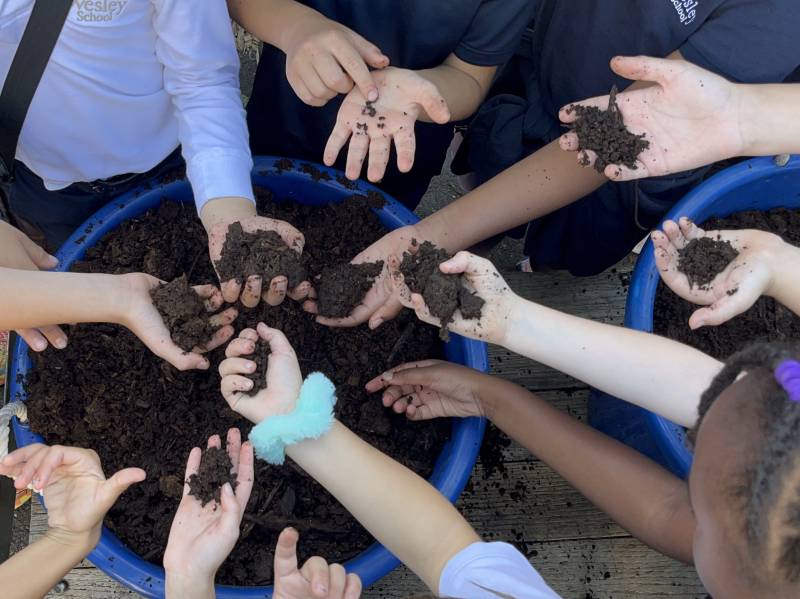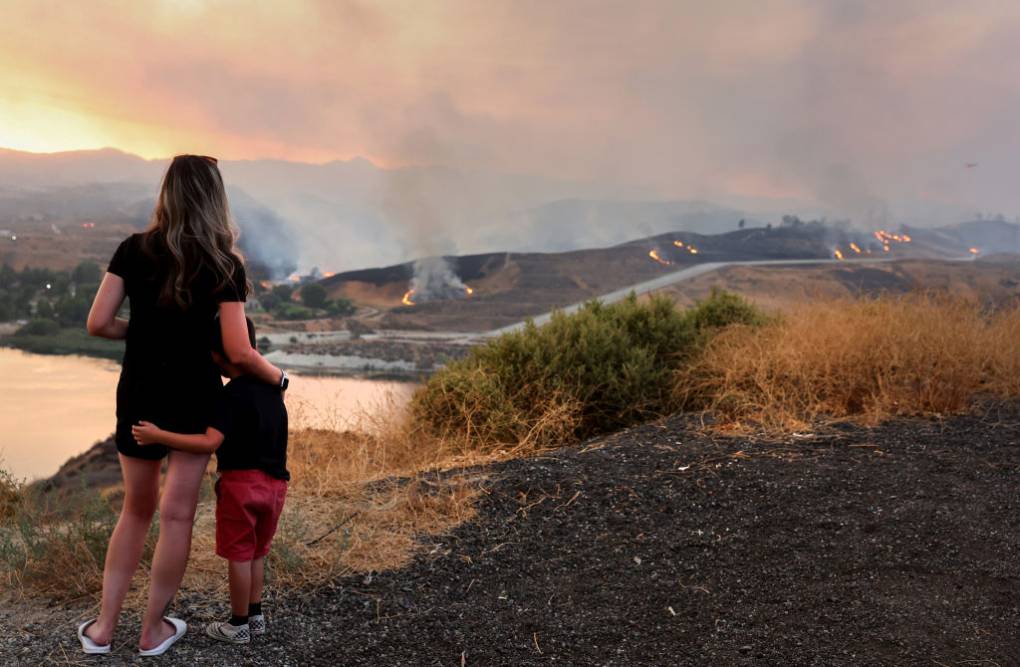When sixth grader Finn saw the finished compost pile, it sank in.
“That’s my orange chicken in there,” he says. “That’s not just like any food. Somewhere in there is my food.”
The school will use the compost on plants around campus. Some will be offered to families that want to use it at home, and whatever is left will be donated.
Fifth grader Kingston was excited to learn his food waste will help grow new food on campus. “It feels good that you’re doing something that helps the planet, instead of just sitting and watching it get destroyed,” he says.
That’s the response Wynbrandt wants. He wants to work with more schools like The Wesley School to start these composting programs. “A lot of us, especially kids, feel really overwhelmed and powerless and don’t know what to do,” Wynbrandt says about the climate crisis. “This is quite an existential crisis, and how do we make a difference? How do we make a dent?”
Therapist Jennifer Silverstein says part of helping youth understand the gravity of human-caused climate change is to build their tolerance to new — and sometimes devastating — information. She says during those difficult conversations, it helps to allow them to be outside in nature, and participate in collective action.


